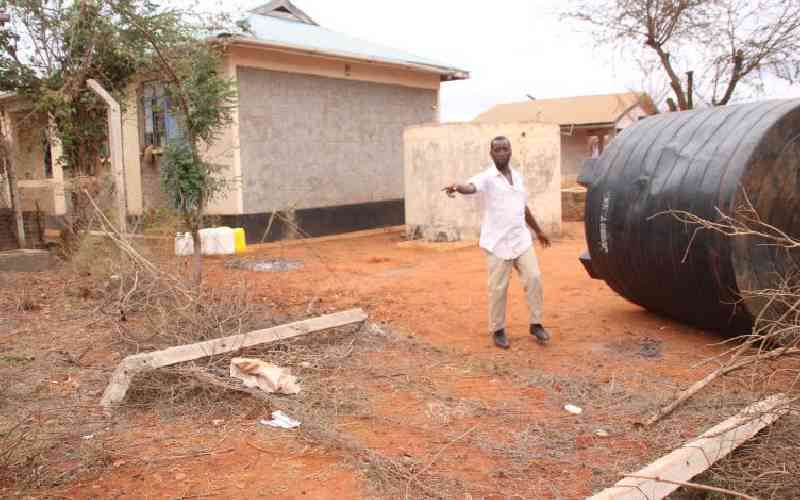×
The Standard e-Paper
Stay Informed, Even Offline

Handerson Keke shows the damage extent caused by elephants at Bamako dispensary. [David Gichuru, Standard]
As Kenyans prepare to welcome the new year, dozens of wildlife attack victims in Taita Taveta County have yet to be compensated.